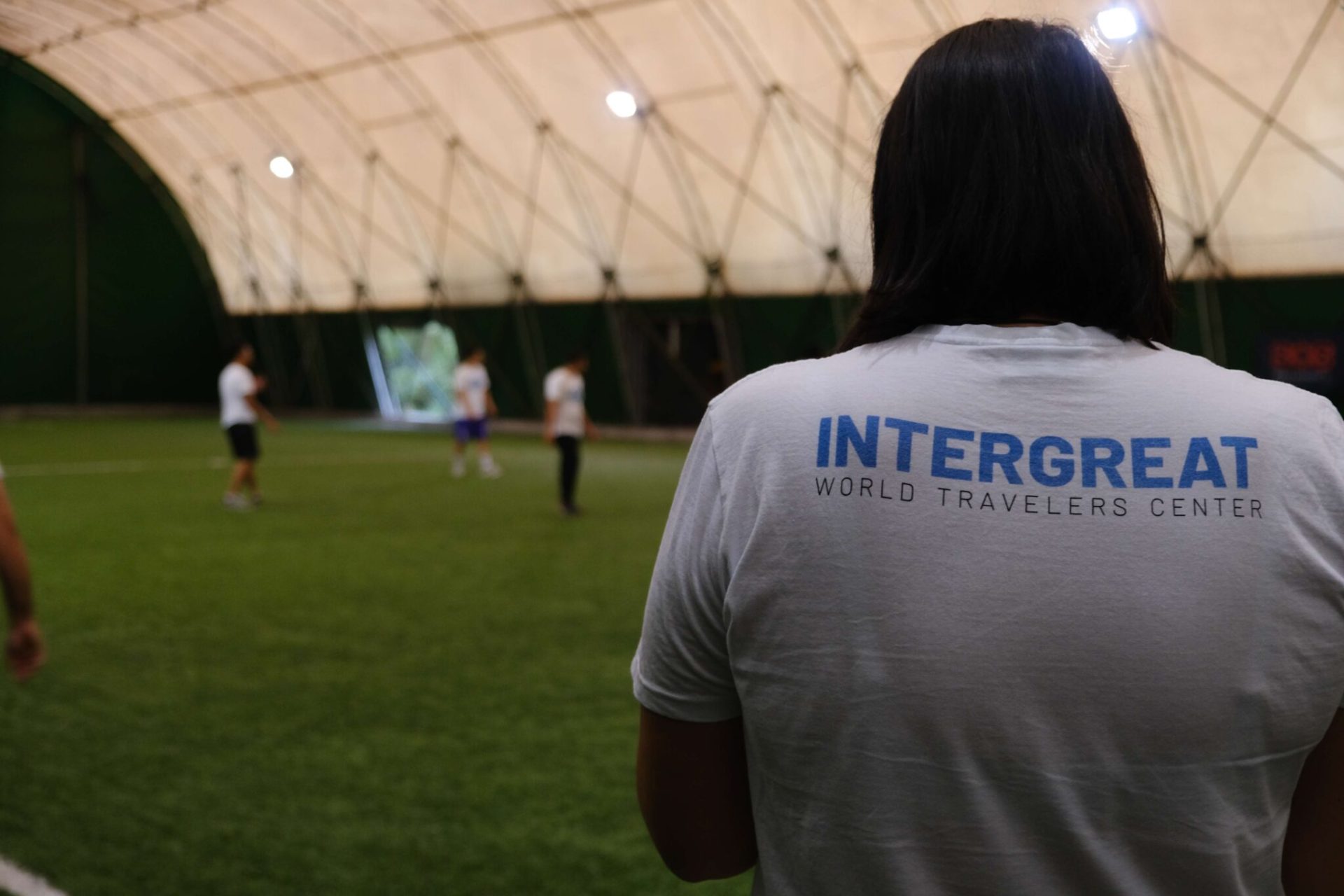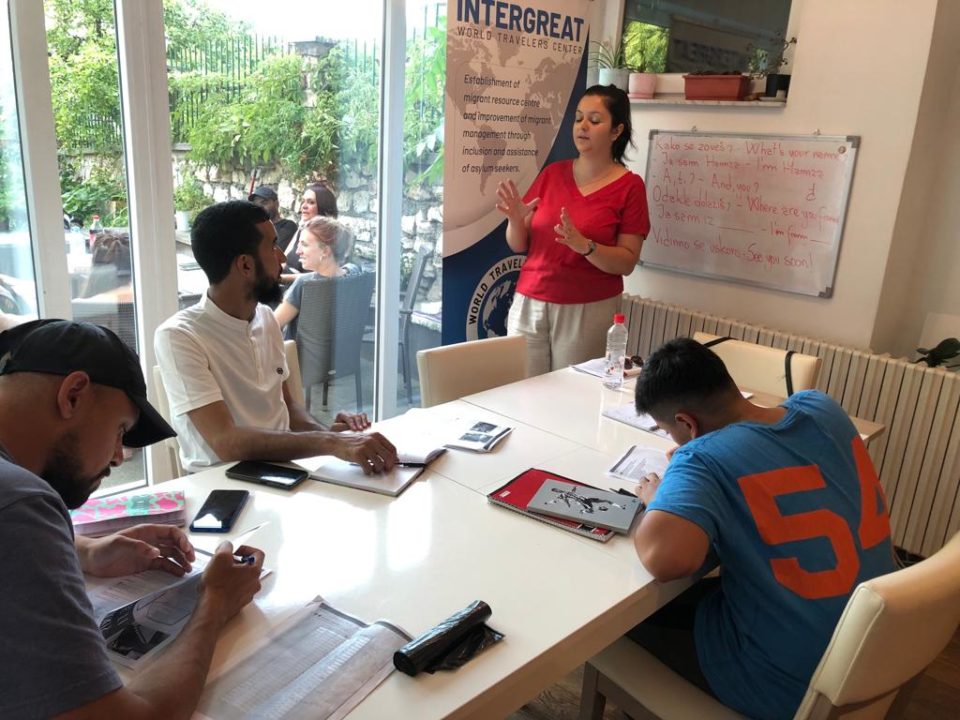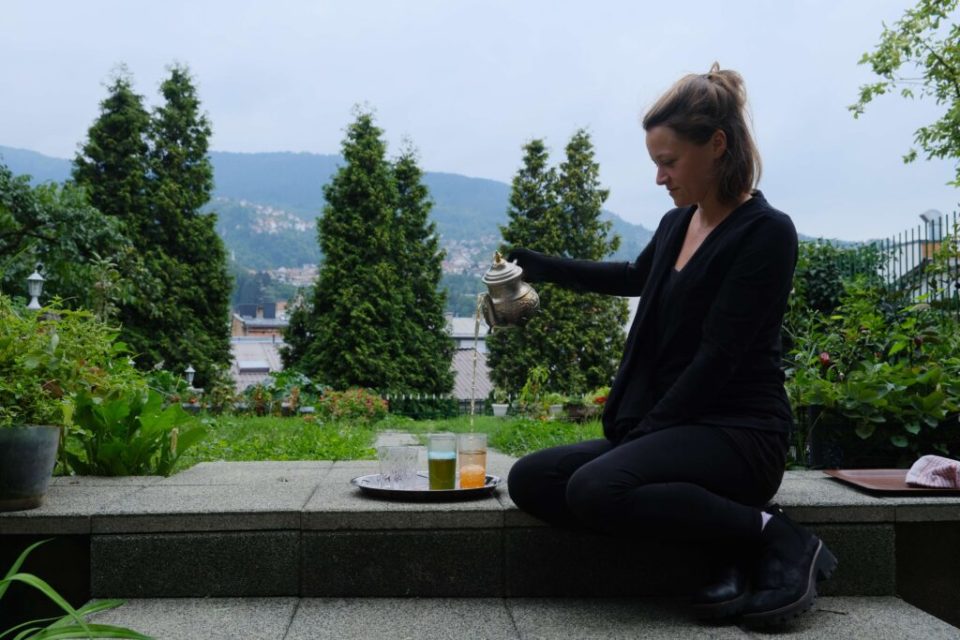
With the arrival of a large number of refugees in Bosnia and Herzegovina (BiH) and the complex state structure, ordinary citizens have often been the ones to offer help.
This was the case with Sanela Lepirica from Ključ, who is now the president of Intergreat, a daily integration center in Sarajevo where refugees receive various types of assistance, including accommodation and support for integrating into Bosnian society.
Sanela’s story began in 2018 when a police checkpoint was established near her home in Ključ, between Una-Sana Canton and the entity of Republika Srpska (RS). The police began screening passengers, whose skin color typically determined whether they were allowed to continue their trip. These people received aid from the mobile team of the Red Cross of Ključ Municipality, where Sanela was then the field coordinator. Three years later, a Red Cross humanitarian service point was established at this location.
In 2021, due to the large number of people on the move, Sanela founded the Intergreat daily integration center to continue her mission of helping others. The center is designed to offer living spaces as well as hold various workshops and trainings, including Bosnian language classes and socializing activities.

“In addition to the center, we also have several apartments where refugees and asylum seekers stay. Our main focus is integrating asylum seekers and recipients of subsidiary protection or asylum into society in Bosnia and Herzegovina,” said Sanela.
Along with its wide-ranging integration program, she highlighted the center’s long-term individual support services. This includes assistance with registration, immigration requirements, legal counseling, language education, and employment. These services continue until recipients are self-sufficient and can live and get by independently.
Intergreat also works with those who have an ‘irregular’ status, meaning they cannot get asylum and must find other ways to remain in BiH, such as marriage or work permits. Under BiH law, foreigners wishing to receive asylum have 15 days from their date of entry into BiH to register with state authorities. Intergreat’s assistance with this process makes the center a pioneer in such efforts in the country.
“I Feel at Home Here”
Besides Sanela, Intergreat employs a lawyer, a Bosnian language teacher, and a cultural mediator. Their daily operations are assisted by volunteers, most of whom are foreigners living in BiH. Among them is Bandar, a volunteer from Yemen who grew up in Saudi Arabia and has been in BiH for six years.

“I received the necessary medical care here, as well as help with administration. I was surprised by how friendly the people were. The way I was accepted helped me feel at home here,” said Bandar, adding that wherever he may go, he would always return to Bosnia and Herzegovina.
Local citizens are also involved in Intergreat’s work, helping beneficiaries to better integrate into Bosnian society.
Everyday expanses
Funding migration management initiatives in BiH is complicated by the country’s current relations with the European Union (EU). Although the United Nations International Organization for Migration allocates about 40 million euros globally per year for migrant camp operations, administrative costs, employee salaries, and other expenses, BiH institutions do not currently receive direct funding for these efforts from the EU.
As part of the ongoing accession process, the EU asks BiH to cover these costs at the state level, along with implementing required reforms for EU integration. However, RS authorities have refused to participate in these activities and do now allow the construction of camps for migrant accommodation on the entity’s territory. This creates an additional problem as the entire transition process must be completed by the end of this year—which seems unlikely based on past experience.
Due to these circumstances, Intergreat, like many non-governmental organizations in BiH, relies on donors for funding to support their projects. As Sanela explains, the center still struggles to cover daily expenses, including rent for both the center and its apartments as well as medical care. She notes that many who come to the center are in need of both primary and secondary healthcare, but these services are not provided by other organizations.
“Everyday expanses include dentists, prescription eyeglasses, expenses for the Bosnian language teacher and lawyer, as well as salaries for the staff employed in our center,” explained Sanela.
As Intergreat struggles to provide refugees with basic life necessities and ensure their rights, they have yet to receive any funding from BiH state institutions. All of their work remains dependent on projects and support from the international community.






